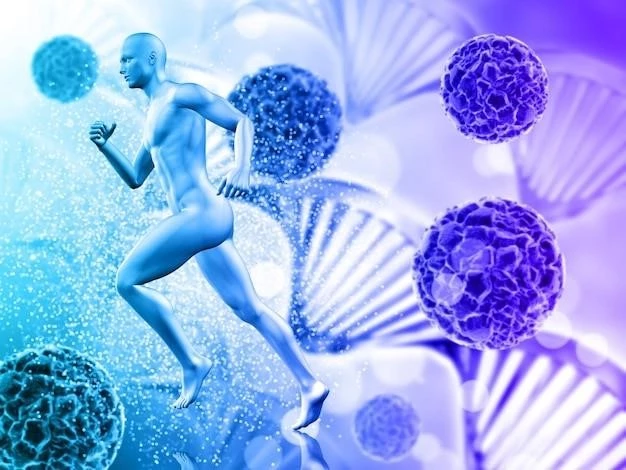Disease ⎼ Inborn Urea Cycle Disorder
Inborn Urea Cycle Disorder is a genetic disorder affecting the metabolism of urea leading to high levels of ammonia in the blood. This article will explore the symptoms‚ brain effects‚ inherited gene mutations‚ and treatment options for children and newborns.
Introduction to Inborn Urea Cycle Disorder
Inborn Urea Cycle Disorder is a rare genetic condition that affects the body’s ability to break down protein. This leads to the accumulation of toxic levels of ammonia in the blood‚ which can be dangerous‚ especially to the brain. Symptoms typically appear in newborns or young children and can include vomiting‚ lethargy‚ seizures‚ and developmental delays. Diagnosis is made through blood and urine tests to measure ammonia levels and specific amino acids.
Left untreated‚ this disorder can have serious consequences on the brain‚ causing irreversible damage or even death. Inborn Urea Cycle Disorder is inherited through mutations in genes responsible for the urea cycle‚ a metabolic process that occurs primarily in the liver. These mutations lead to deficiencies in enzymes necessary for the breakdown of ammonia into urea.
Treatment options for children and newborns with this disorder usually involve a combination of low-protein diets‚ medication‚ and in severe cases‚ dialysis. Liver transplants may be necessary in some situations. Enzyme replacement therapy and ongoing monitoring are vital to managing the condition and preventing complications. Early diagnosis and intervention are crucial for the long-term health and well-being of individuals with Inborn Urea Cycle Disorder;
Symptoms and Diagnosis
Common symptoms of Inborn Urea Cycle Disorder include vomiting‚ lethargy‚ seizures‚ and poor feeding in newborns and young children. These signs are often triggered by the accumulation of ammonia in the blood‚ leading to toxicity in the brain. Diagnosis of this genetic disorder involves specific blood and urine tests to measure levels of ammonia and amino acids.
Other symptoms can manifest as behavioral changes‚ confusion‚ and coma in severe cases. Medical professionals rely on these diagnostic tests to confirm the presence of Inborn Urea Cycle Disorder. Genetic testing may also be performed to identify mutations in the genes responsible for the urea cycle.
Early detection of this disorder is essential to prevent life-threatening complications such as brain damage. Monitoring ammonia levels through routine testing can help with timely intervention and management of symptoms. Proper diagnosis allows healthcare providers to tailor treatment plans to the individual needs of each patient.
Effects on the Brain and Complications
Inborn Urea Cycle Disorder can have severe effects on the brain due to the toxic buildup of ammonia. High levels of ammonia can lead to encephalopathy‚ which manifests as confusion‚ lethargy‚ and in severe cases‚ coma. These neurological symptoms are a result of the brain’s sensitivity to ammonia toxicity.
Complications of this disorder can be life-threatening if not managed promptly. Brain damage from prolonged exposure to high ammonia levels can be irreversible‚ impacting cognitive function and overall quality of life. Seizures and developmental delays are common complications that can arise from untreated Inborn Urea Cycle Disorder.
Long-term consequences of brain damage can include learning disabilities and behavioral issues. Timely diagnosis and appropriate treatment strategies are crucial to prevent complications associated with this metabolic disorder. Close monitoring and adherence to treatment plans can help minimize the impact on the brain and improve outcomes for individuals with Inborn Urea Cycle Disorder.
Inherited Gene Mutations and Liver Metabolism
Inborn Urea Cycle Disorder is caused by inherited gene mutations that affect the ability of the liver to metabolize ammonia. These mutations impact the enzymes responsible for the urea cycle‚ a crucial process for converting ammonia into urea for elimination from the body.
The liver plays a central role in this metabolic pathway‚ with each enzyme in the urea cycle contributing to the conversion of ammonia. When gene mutations disrupt the function of these enzymes‚ ammonia levels can rise‚ leading to the characteristic symptoms of Inborn Urea Cycle Disorder.
Individuals with this disorder inherit gene mutations from their parents‚ making it a genetic condition. Mutations in specific genes involved in the urea cycle‚ such as CPS1‚ OTC‚ and ASS1‚ can result in different forms of the disorder‚ each with its unique metabolic implications.
Understanding the genetic basis of Inborn Urea Cycle Disorder is essential for accurate diagnosis and individualized treatment approaches. Genetic testing can identify specific gene mutations‚ allowing healthcare providers to tailor interventions to target the underlying metabolic abnormalities in the urea cycle.
Treatment Options for Children and Newborns
Managing Inborn Urea Cycle Disorder in children and newborns involves a multidisciplinary approach to address the metabolic challenges associated with the condition. Treatment options typically focus on reducing ammonia levels‚ supporting liver function‚ and preventing complications related to the disorder.

One key aspect of treatment is dietary management‚ which includes a low-protein diet to minimize the production of ammonia. Specialized formulas and supplements may be recommended to ensure adequate nutrition while limiting protein intake. Monitoring protein levels in the diet is crucial to prevent ammonia buildup.
Medications such as phenylbutyrate and benzoate may be prescribed to help eliminate excess ammonia from the body. These medications aid in the excretion of nitrogen byproducts‚ reducing the toxic effects of ammonia on the brain and other organs. In severe cases‚ hemodialysis or hemofiltration may be necessary to remove excess ammonia from the bloodstream;
In some instances‚ liver transplant surgery may be considered as a treatment option‚ especially for individuals with severe forms of the disorder or those unresponsive to conventional therapies. A successful liver transplant can provide a source of functional enzymes essential for the urea cycle‚ improving the body’s ability to metabolize ammonia.
Close monitoring of ammonia levels‚ nutritional status‚ and overall health is essential for the long-term management of Inborn Urea Cycle Disorder in children and newborns. Regular follow-up with a metabolic specialist and genetic counselor can help optimize treatment strategies and minimize the risk of complications associated with this genetic disorder.
Importance of Enzyme Replacement Therapy and Monitoring
Enzyme Replacement Therapy (ERT) plays a crucial role in the management of Inborn Urea Cycle Disorder by providing the deficient enzymes needed for the urea cycle. ERT supplements the body’s natural enzyme production‚ aiding in the breakdown of ammonia and reducing the risk of toxic buildup in the blood.
Monitoring ammonia levels and overall metabolic function is essential for assessing the effectiveness of treatment and making adjustments as needed. Routine blood and urine tests help healthcare providers track ammonia concentrations‚ amino acid levels‚ and liver function markers to ensure optimal metabolic control.
Regular monitoring allows for early detection of metabolic imbalances or enzyme deficiencies‚ enabling timely intervention to prevent neurological complications. Adjusting treatment protocols based on monitoring results can help mitigate the risk of acute episodes and long-term damage to the brain and other organs.
Genetic counseling is an integral part of the management of Inborn Urea Cycle Disorder‚ especially for families with a history of the condition. Genetic counselors can provide information on inheritance patterns‚ risk assessment‚ and family planning options to support informed decision-making regarding the transmission of the disorder.
Overall‚ the combination of Enzyme Replacement Therapy‚ close metabolic monitoring‚ and genetic counseling plays a vital role in improving outcomes and quality of life for individuals with Inborn Urea Cycle Disorder. By focusing on enzyme replacement and proactive monitoring‚ healthcare providers can better manage the metabolic challenges associated with this genetic condition and optimize long-term health outcomes.
